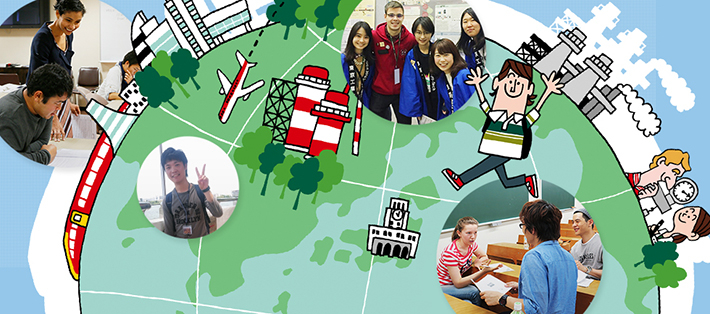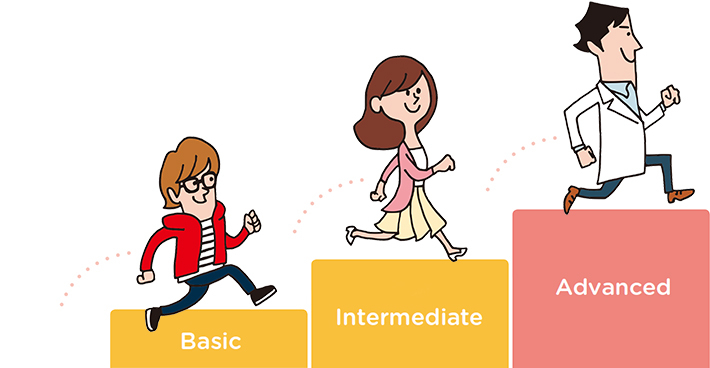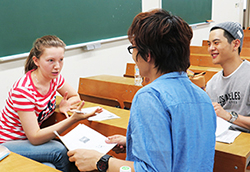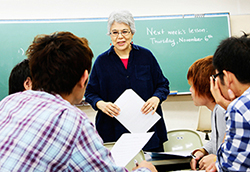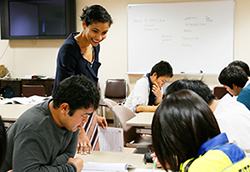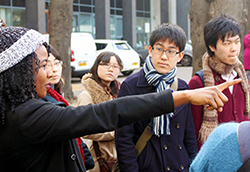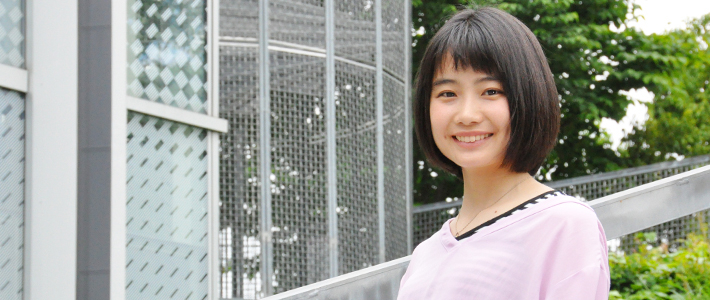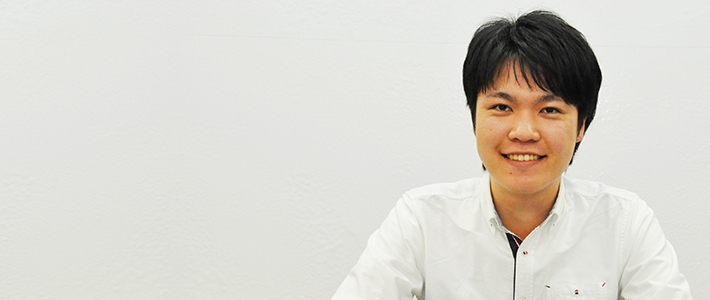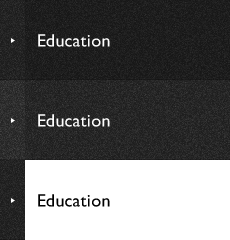I first learned about GSEC from a pamphlet I received during our entrance ceremony. I knew I wanted to make my mark overseas, but I did not have any concrete opportunities to do so in high school. The systematic advancement in the course sounded like an efficient way to achieve results.
After joining a short study trip to the U.K. in my first year, I participated in the International Genetically Engineered Machine (iGEM)* Competition in my second year through GSEC's Study Abroad and Internship Program. As project leader, it was my first time to take on a number of tough challenges — organizing research, planning projects and allocating work to team members, and deciding how and when to share information.
Our main goal during the iGEM project was to enable everyone to enjoy synthetic biology. Our research involved the control of protein production in E. coli, and we decided to call our project Snow White, as we wanted to retell the children's story using genetic modifications of the bacteria. We aimed to create four parts that were roughly analogous to components in the story — for example, a substance that stopped E. coli proliferation corresponded to the poisonous apple, while another that restored growth corresponded to the prince. We worked on this project from April to October 2016, and were rewarded with the iGEM gold medal — Tokyo Tech's tenth consecutive top prize.
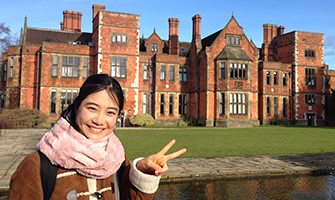 At University of York
At University of York
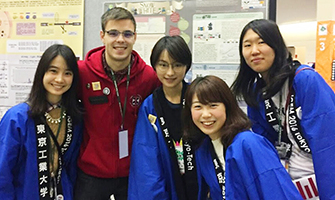
iGEM poster session
I obviously think about becoming a researcher in the future, but during my time at Tokyo Tech and in GSEC, I have also learned that I very much enjoy connecting talented people with others. Using the specialized knowledge I have gathered, I can provide a bridge between science and society, and help return the creative ideas of the vanguard back to those who really need them.
* iGEM is a worldwide synthetic biology competition held at Massachusetts Institute of Technology that encourages students to work together to solve real-world challenges by building genetically engineered biological systems with standard, interchangeable parts.
When I enter the Institute, I actually did not have any plans to go overseas. However, the group work carried out during the Global Awareness Program, which was facilitated partly by an international teaching assistant, suddenly put me in contact with a diverse group of people. I learned to think and react from multiple perspectives and understood how differently Japan is viewed from outside our cultural and geographical borders. I absorbed plenty of new knowledge that I could not access previously. When it was time to head for the U.K., I felt a certain level of anxiety and resistance, but once there, the immediate sense of discovery and awareness allowed me enjoy the experience in my own, personalized way.
As part of an extracurricular program involving numerous universities, I also visited Thailand to propose potential solutions to local governments regarding the nation's water problems. As we formed teams with other students, I realized that many people were specialists in international environment, politics, and economics. These contributors often approached the problem in terms of cost or system creation, but not through new technical solutions or technologies. With my knowledge, I was able to advise my team and provide a much-needed science and technology perspective. At the end of the program, our team received the top prize for the fundamental solution we proposed, and I realized that my technical expertise was a powerful tool on the international scene.
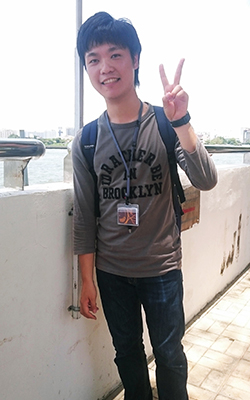
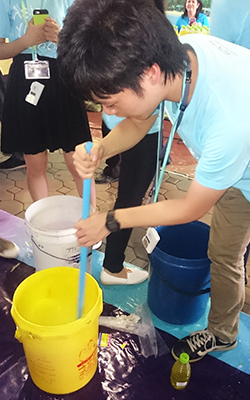
Visiting Thailand: Kataoka at Chao Phraya River (left) and demonstrating how to make organic washing liquid
. Any information published on this site will be valid in relation to Science Tokyo.


